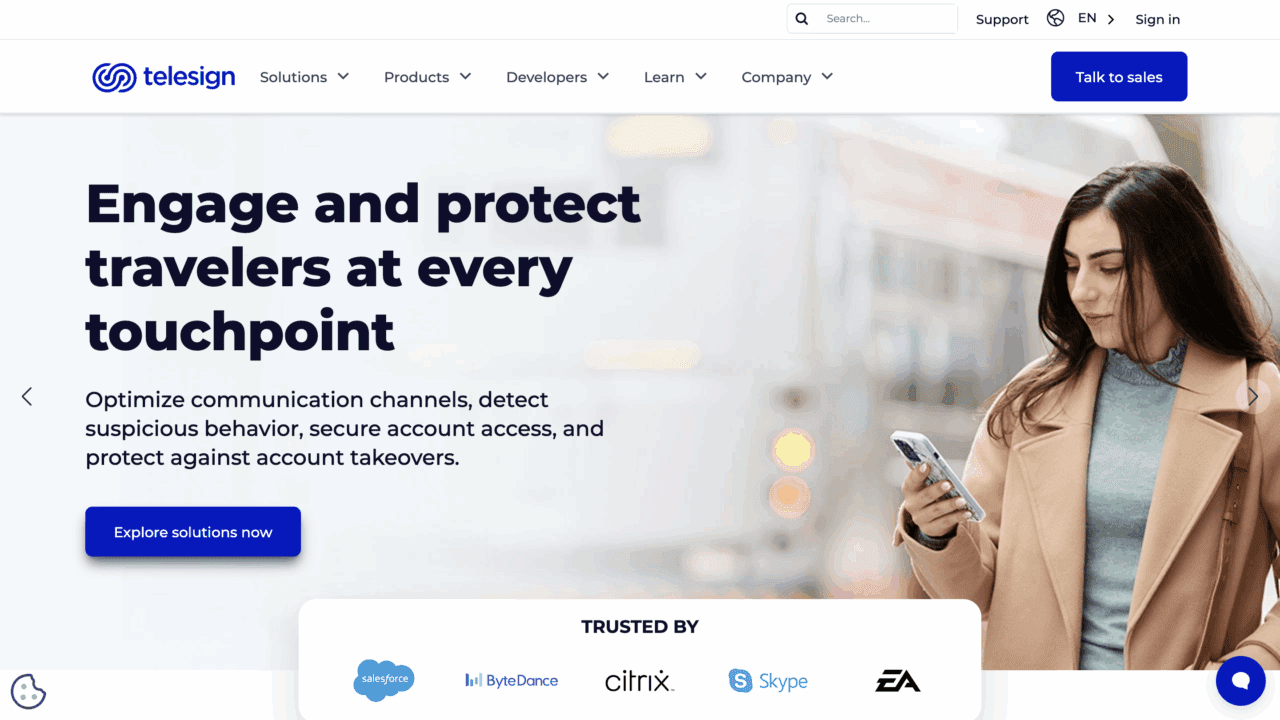
- Identity verification provider Telesign, a Proximus Global company, has teamed up with SaaS-based secure payments provider PCI Pal.
- The two companies will offer a Fraud Management Suite that uses Telesign Intelligence to provide fraud teams and AI bots with real-time risk intelligence before potentially fraudulent transactions occur.
- Headquartered in Marina del Rey, California, Telesign made its Finovate debut at FinovateFall 2023.
A new partnership between identity verification innovator Telesign, a Proximus Global company, and SaaS-based secure payments provider PCI Pal will create a Fraud Management Suite to help international businesses leverage AI to identify fraudulent payments before they occur.
The new solution is designed to be especially effective against Card-Not-Present (CNP) attacks that are easy for fraudsters to use and difficult for fraud prevention teams to stop before they make their impact. Because fraudsters only need the expiration date and three-digit CVV number in order to assume another person’s identity over the phone and make fraudulent transactions, this type of fraud can be especially difficult for contact center workers to detect.
The new offering from Telesign and PCI Pal provides agents and AI bots with real-time risk insights before the transaction begins. This reduces chargebacks and revenue loss, but does not add friction to the customer experience. The solution leverages Telesign Intelligence, an AI-powered tool that identifies fraudulent activity by scoring the level of transaction risk associated with the phone number being used for the transaction. This score can be used to determine whether or not the transaction should be allowed to go through, blocked, or flagged for further review and additional verification.

“AI is transforming how we approach security—not just in detecting fraud, but in anticipating it,” PCI Pal CTO Mufti Monim said. “This launch lays the groundwork for a more intelligent and adaptive platform, that secures payments across all channels while enhancing both customer and agent experiences. It’s the first step in a broader roadmap to unify fraud prevention, compliance, and customer experience into one seamless, scalable platform.”
The partnership comes as Juniper Research reports that the cost of payment fraud to consumers and businesses is expected to grow from $44 billion in 2024 to $109 billion in 2029. Further, Juniper Research notes that 79% of companies reported being victims of payment fraud attacks in 2024.
“Payment card fraud is a significant challenge for contact centers, and this partnership addresses that issue by making voice-based interactions with enterprise more trusted, seamless and secure,” Proximus Global Business Lead Rajdip Gupta said. “Our work with PCI Pal aligns with our ongoing commitment to protect enterprises from evolving threats, without disrupting the customer experience.”
Founded in 2005 and headquartered in Marina del Rey, California, Telesign made its Finovate debut at FinovateFall 2023. At the conference, the company introduced a new tool that depicts risks inherent in the onboarding process and showed how firms can mitigate the risk via intelligent phone number analysis and insight.














